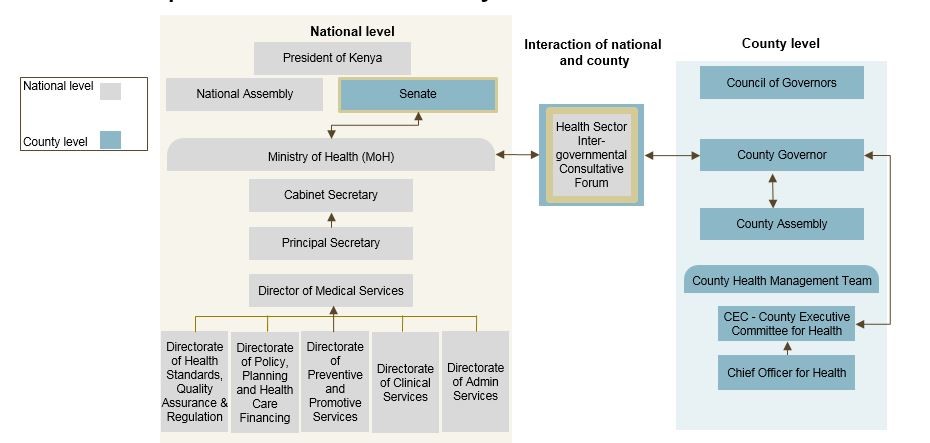Home > African Marke > Kenya
Time: Apr 22, 2016
Regulatory Policies
The health system in Kenya devolved to a county level in 2012, leading to variable levels of quality across the country.
A 2012 constitution devolved many responsibilities (including health care) to 47 county.
1) Healthcare, agriculture, urban service, and local infrastructure were devolved in one year, instead of over the planned 3-year transition period
2) The national Ministry of Healthcare (MoH) is responsible for setting health policies and strategies
3) County governments are currently responsible for implementing these policies, and for the majority of health resource allocation
Quality is varied, dependent on the strength of the county leadership. E.g., Machakos County has a strong reputation for leadership and is good at courting investors and donors. Donor support grants skewed towards treatments and provision. Government budget for healthcare in 2014 was estimated KES 47.4b (USD 541m).
Post-devolution, policies and strategies are set nationally, but are implemented at a county level.

The health sector is governed through two ministries, the Ministry of Medical Services and the Ministry of Public Health & Sanitation. The Kenya Health Policy Framework (1994-2010) is the overarching health policy and the National Health Sector Strategic Plan (2005-2010) elaborates the strategic imperatives for the sector[1].
The Pharmacy and Poisons Board (PPB) is the pharmaceutical regulatory authority in Kenya established by law under the Pharmacy and Poisons Act, Cap 244. The Board regulates the practice of pharmacy and the manufacture and trade in drugs and poisons. The PPB is in need of substantial reform. Its resources and systems are simply not up to the regulatory burden.
The National Quality Control Laboratory (NQCL) was established as the technical arm of PPB to provide for the examination and testing of drugs and to ensure quality control.
The functional relationship between NQCL and PPB is implicit but not clearly defined[2].
[1] Ibid.
[2] Pharmaceutical Sector Profile: Kenya, pp.7-8.

